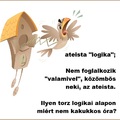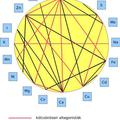Test it, you too! Outline, short summary.
Nowadays, there is also a so-called Scientific (cognitive) God. Yes to the many gods created and invented by humans ( Aten, Horus, Mithras, Dionysus, Attis, Krishna, Vishnu, Baal, Thor, Wotan, Borvo, Yahweh, Kukulkan, Marduk, Allah, Re, Zeus, Shiva, Dyḗus, Ahura Mazda, Zurvan, Manitou the Great. ... ) beyond and beside. Of course, this is not a mythological creature, nor is it some natural formation (Sun, trees, springs, animals, stones) for which a personified meaning is invented. Rather, it covers neurological and psychological processes. However, this "God" is proven and can be tested. Human physiology is part of our real world. This also raises the question of the meaninglessness of atheism.
The lack of a precise, meaningful, scientific definition is also a serious error in reasoning and logic! Important thought: Is it possible to examine the correctness or incorrectness of a definition? In memetics and logic there is/exists the operation of "redefinition". Because yes, something may be incorrectly defined.
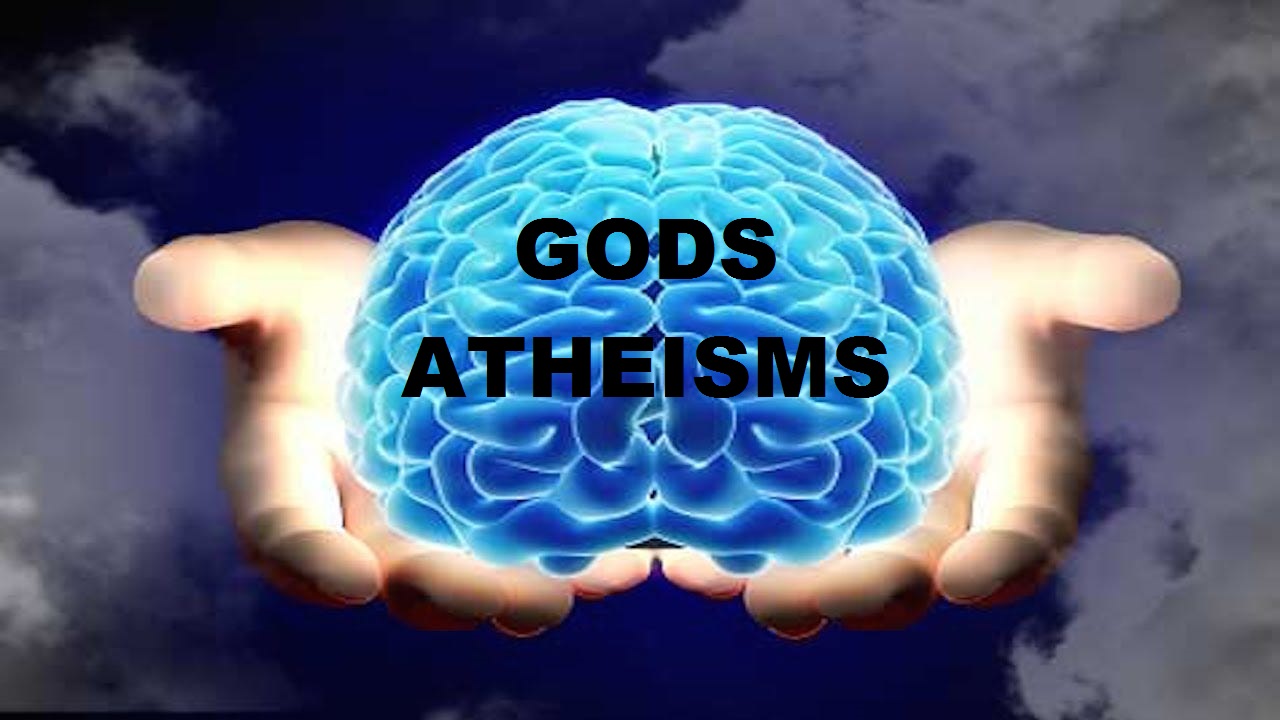
Definition (IGe); Giving the main characteristics of something, which makes it unmistakable with other things. Basic rules of definition:
- No circling. (vicious circle, petitio principii)
- There should be no obscurity.
- The definition must not be too wide or too narrow.
- Intelligibility. It cannot refer to another, undefined thing.
- One thing, it identifies, or many things of the same kind.
- A definition should not be negative where it can be positive. We should not define "wisdom" as the absence of folly, or a healthy thing as whatever is not sick.
The typical definitions of atheism violate practically all of these main rules.
We have a lot of concepts (words) that many people use with incorrect definitions. Nothingness, infinity, existence, supernatural, believer, agnostic, atheist, metaphysics, "God"-"Car", theology, faith, science ....
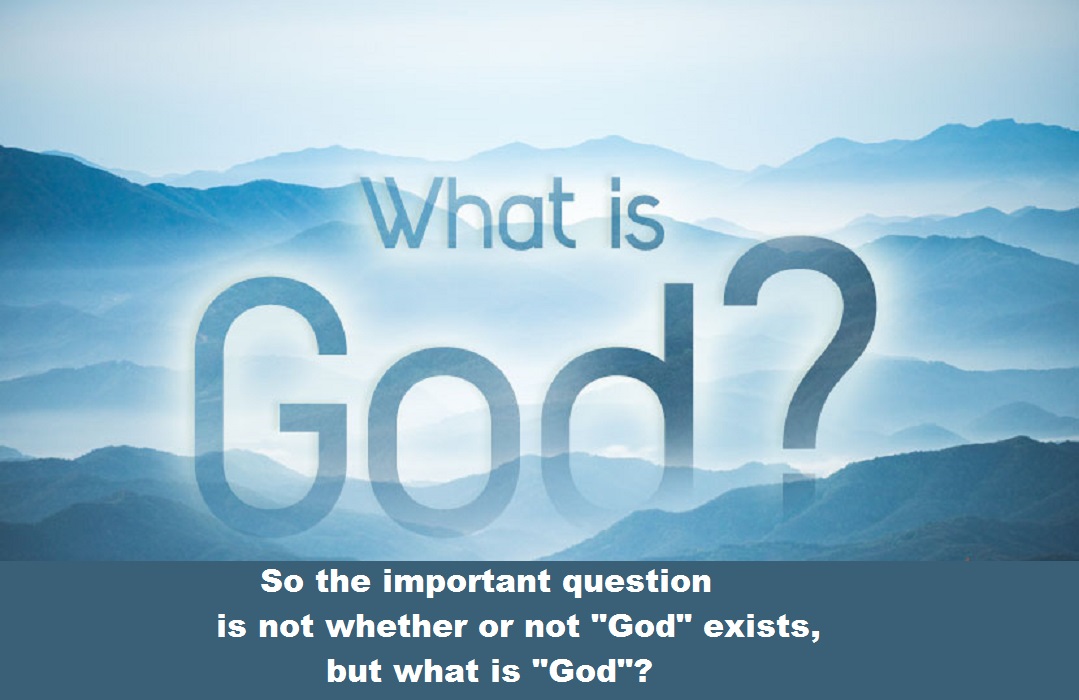
Atheism is pseudo-science and pseudo-philosophy. In fact, it is only a counter-religion, a denial-religion. With a philosophical and logical example: "Babig" denial, or aBabigism.(Babig; Rudolf Carnap 1891-1970 German-American philosopher, logician.)
Why is atheism a belief? :
1. Atheists believe that atheism is not a faith.
2. Atheists believe that atheism is not dogmatic.
3. Atheists believe that atheism is logical.
4. Atheists believe that atheism is a scientific worldview.
5. Atheists believe that atheism is more advanced than theism.
6. Atheists still BELIEVE that "God" is what is described in a storybook called the "Bible". (!) (?) Of course it's a religion, like atheism.
In science, it is necessary to prove, namely so that the proof can be tested. It is not customary to accept other people's tales as correct. Thus, atheists, in principle, start from a wrong definition of "God".
Boiled types of atheism, and some interesting connections. The result of human-ethological research and observation. Because the older systems are now obsolete. Which is just scientific-philosophical data.
1. Mono-atheistic. - A piece in the direction of denying God, or disbelief.
2. Poly-atheist. -To deny many/more Gods or not to believe in them.
3. Interfaith atheist. - They mutually deny and do not believe in each other's gods.
4. Own God Atheist. - Invisible Pink Unicorn God, Big Meatball Dough God, etc.
5. State-registered atheism in church form
6. Militant atheism. - Want to eliminate theism.
7. Anti theist. - Opposition to the social influence of official churches and religions.
8. Apatheist. - An apatheist is someone who is not interested in accepting or rejecting any claims that gods do exist or do not exist.
9. Igtheism = Ignosticism. - The idea and philosophical trend that the question of God's existence is meaningless because the word "God" has no clear definition
10. Anti-atheism. - They do not believe in theism and atheisms.
11. etc. + a-Santa-ism, a-unicorn-ism, a-Winnie-the-Pooh-ism, a-Snow-White-ism, a-Jon-Snow-ism -Game of Thrones-, a-Vilmos-Tell-ism, a-Vladimir-Ilyich-Lenin-ism, a-Stephen-Hawking-ism, a-God-ism, a-Karakutty-ism, a-ZarahurMara-ism, a-Existence-ism, a-Babig-ism
12. Nonism. - Reluctance to tie your worldview to any ideology. According to some opinions, the neutral position is also atheism. Which is a clear logical error.
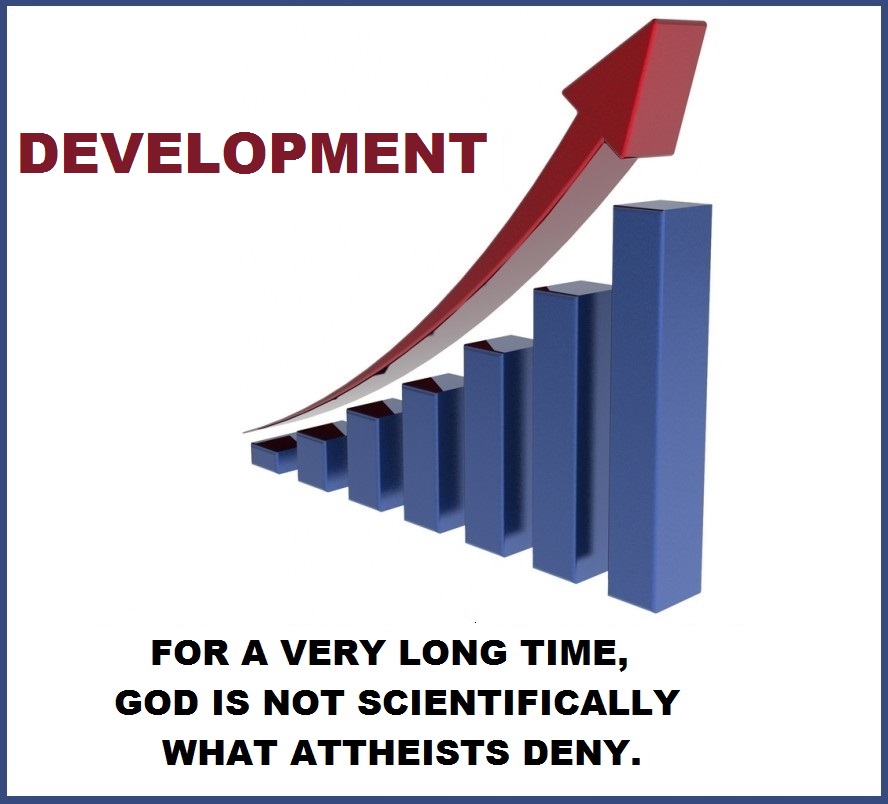
Philosophizing "God exists" vs "God does not exist" is meaningless. Some very simple things just need to be thought through and logically.
1. What is "God"? -> What is "Karakutty"?
2. Why "God"? -> Why " Karakutty"?
3. So is "God / Karakutty" because it was invented that way? Karakutty is the creator of God. That's how it was invented.
4. This is a logical fallacy. Circular reasoning. Invalid !!!
What does the "existence" of my toothbrush have to do with whether or not people believe in it? Reality does not depend on either belief or disbelief. That is why both atheism and theism ... are religions, beliefs, dogma systems. In other words, atheism is not suitable for scientific investigation.- "Some atheists seem to suggest, that "I lack a belief of A, therefore A does not exist", but it is an argument from ignorance."
Do you think there are no mythological characters? Atheism becomes a parody of itself when, in its god-denying overzealousness, it wants to reinterpret even the word existence so that it cannot be said that there are mythological figures in myths.
"Scientific God"; the one that corresponds to the rules of scientific methodology, correct reasoning and empiricism. It started with data collection and observation. Then, after sorting and processing the data, he went through the most rigorous scientific methodological process. So it is not invented like a fairy tale, but also discovered, proven and testable. You can even test it yourself. Theists should not be bothered by this, since there have been many, many Gods. This has such an effect on the denial belief of atheists that it is impossible. It's getting ridiculous.
So the important question is not whether or not "God" exists, but what is "God"?
I don't believe in atheism and atheisms. Many of us are like that.
It is scientifically proven and many times over that God/gods are invented by humans. That's why God/gods don't exist? Is it also proven that mathematics was invented by humans? So you think there is no mathematics and does not exist? Atheists use the verb "to be" / "to exist" incorrectly.
Does atheism require logical thinking? Or is it enough to just copy and repeat atheist dogmas? I've tested it in many places and atheists are just memetic meme copycats. They don't think logically.
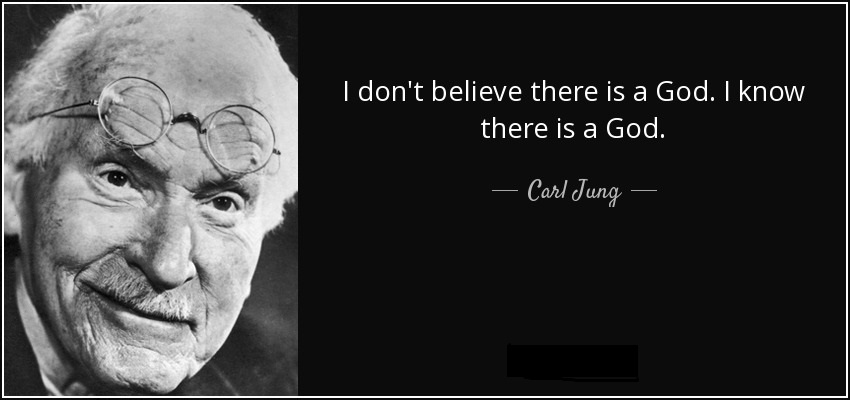
Why did a Hungarian engineer who studied control and robot technology as a basic profession deal with such questions at all? In the 1990s and 2000s, I was a member of many scientific societies. First of all, that of the Engineering Science Association, whose headquarters at the time were located on the same square as the Parliament and were in close cooperation with the Hungarian Ausztonauticai Company. So I was active there and in many other scientific societies as well. Among others, there is also one at a foundation that researches the abilities of the human psyche (called AION). Also at the Society of Respecters of the Facts and at the Hungarian Para-Research Scientific Society. I have successfully deciphered several things declared to be mysterious para-phenomena. I proved that it is operated only by simple known physical processes. So there is no parapsychology in them. Thus, the only real challenge was the deciphering of perhaps humanity's greatest para-phenomenon, "God". With which I messed around for two decades, before I thought that this could be published, because it is logical, verifiable and testable.
Scientific methodology is a filter that separates the nonsense from the rational and logical. This filter can be applied to everything in the world that we already know about in any form. If we apply this filter to "God", then only the real part of most religious descriptions will remain. For example, the people who created religion did indeed create "Gods", and quite a lot of them. That's a fact. A lot of untrue descriptions, and besides. Of course, creation is only a religious jargon and the correct usage would be "made / invented" instead. Furthermore, we must not forget that even scientists who set themselves up as rational minds pondered the subject a lot and many of them only produced nonsense, but there were also those whose work confirms and is the basis of the scientifically defined "God".
If we filter "God" through scientific methodology, then the exaggeration and lies characteristic of many myths will be removed and reality will remain. Which is still quite mystical and unbelievable for a lot of people. Of course, you don't have to believe this anymore, you have to know. Because faith is only uncertainty, a synonym for not knowing. What is certain is to be known and not believed.
Scientific methodology has many ways, but the first and most important in such cases, when there are no tangible and clear clues - only descriptions, opinions, partial research, intuitions, tips - is data collection. So I started collecting what people around the world consider "God". So I have collected several thousand, to be exact around five thousand definitions of "God". Lots and lots of data. Which ranged from appropriateness in the theological lexicon to the simplest, even ironic idea. I didn't see it, and it wouldn't have made sense to record it all and put it away for posterity, because it can practically be collected again at any time. What did I do instead? I filtered out the repetitions and almost completely identical definitions and my collection has already shrunk to a much more manageable number of 100-150 pieces.
Then I started to organize and analyze the data. One thing was immediately proven by them. The fact that people define "God" in so many different ways is clear evidence that they do not believe in the same "God" and deny the same "God".
It would be impossible in the first place, and according to the requirements of scientific methodology, there is no need to strive for a definition of "God" that would satisfy all religions. If this had ever been possible, mankind would not have tens of thousands of religions and Gods. ... But there is. It follows that logic and provability and consistency are what matter in the further analysis. In such cases, science suggests that we set up possible theories. We test them and make them more precise if possible. Discard the one that is not possible. Let's keep experimenting with what is only inaccurate or has partial errors. I did that too.
It took 20 years or so of analysis, continuous testing, compression, and improvement processes, in addition to many other things, but in the end, a fairly accurate definition of Scientific God was published, which can be considered a fact, without any exaggeration. After all, the reality of this God has already been proven and can be proven.

J.C.S.: Militant agnostic motto: "Damn it, I don't know! And neither do you!" / “I dang well don’t know. And you, sure as shit don’t either!” ( magyar nyelven: Harcos agnosztikus mottó: "A fenébe is, nem tudom! És az tuti, hogy te sem!” )
The Scientific (cognitive) God proof is summarized:
Or IGe's argument:
1. God has many semantic meanings. Scientific too.
2. God can be defined scientifically. It is not beyond science.
3. There is a scientifically defined God. It is provable and proven.
4. The proof can be repeated, checked, and therefore tested.
5. In principle, the proof could be refuted - by those who are capable of it - but it is expected to be further clarified. It is not inconceivable that brain research and neurology will find and detect nervous system/psychological viruses directly.
6. It follows from the third point that the existence of God is a scientific fact. Atheism is meaningless.
7. It follows from the above that the dogmatic religious and atheist definitions of God are not scientific.
8. It follows from these that whoever considers the dogmatic and not the scientific God to be God, essentially has a meme infection, or in a more serious case, a mental illness.
9. Meme infections can be cured. Much like biological viral infections. With memetic vaccines. In more serious cases, with psychological and psychiatric methods. Rational reasoning is ineffective even for atheists.
10. Nervous system virus / meme / psychovirus infections can be prevented. Also similar to biological viral infections.
... and this is the Scientific God in the shortest possible way:
Scientific (cognitive) God = God = collective term
1. main mythical creatures created by humans
2. a psychological compulsion
3. a nervous system/psychological virus/meme.
This proof was made on the basis of scientific methodology and can therefore be reproduced, repeated, verified and tested. Psychiatry is part of medicine. It is part of physiology, physiology. Human psychological diseases are proven. "God" is essentially such a disease.
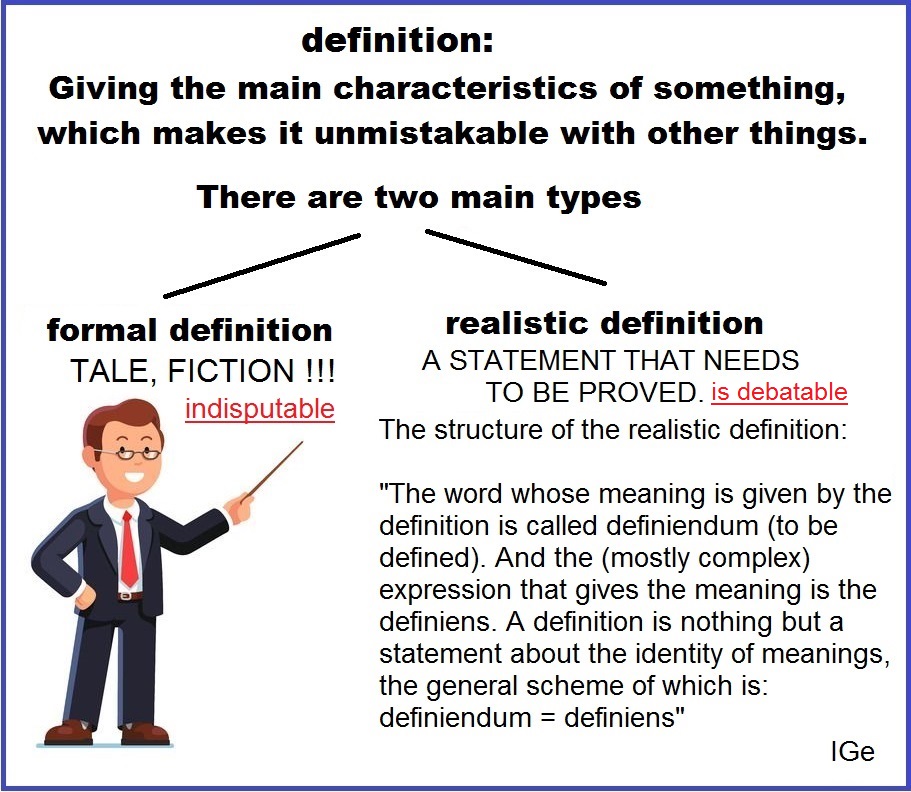
- Anyone can start collecting data on definitions of "God" again.
- Anyone can sort this data
- Anyone can process this data
- Anyone can set up major research theories
- Anyone can determine which of these theories correspond to correct reasoning, logic and reality
- Anyone can publish their results...
.... etc
In fact, I would be very happy with such reproductions. Why? Because the data collection took place primarily in a European environment. I think it would be different if we say that it would happen in China, India, Japan, Africa, South America or Papua New Guinea or Australia.
So far, tests have been carried out primarily in Hungary and in the Hungarian language. The most successful of these: the followers of Alvin Plantinga and William Lane Craig had to give up their proselytizing activities. Which happened with the so-called logical god arguments. We managed to prove that they are not logical, but flawed in reasoning. Several of them also left their careers as priests, pastors and theological instructors. Furthermore, some Hungarian atheist organizations have also acknowledged that "God" can be investigated scientifically.
The vast majority of the human genome (DNA) was encoded by micro-organisms. This is factual data. Of this, the largest share is the encoding of viruses. This is also why the behavior of the human animal is viral. Mentally too. This is what I tested to see if this is really the case and if the immunization principle applies here as well, or only for biological viruses. Well, it works here in this area too. Anyway, "conversion" is something much more general than just spreading Judeo-Christian ideology. I tested it on atheists and it works there too. There are also easily treatable mental illnesses. By now, even atheisms and beliefs in God have become curable / immunized easily and with laughter. In fact, it doesn't even require individual therapy, because the cure also spreads like an infection.
I proved that both atheism and theism are meaningless. Irrational, illogical. Both, just a human psychic state. Atheism, alignment with fictional characters. Addiction to it. I would also recommend a-Snow White-ism. :-)

Home - John Templeton Foundation
For a more detailed explanation of the given topic in English, I would like to find a printed or digital e-book publisher. The prequel to this was already published in Hungarian under the title Tricky Meme (Trükkös Mém), Beyond / Over / Too Richard Dawkins. Funny additional subtitle: Bible of God-Knowers. It is currently distributed in all important places on Earth, but important developments have also taken place in the meantime, with which it should be supplemented. On the other hand, it would be necessary to compile it in a version that could give a chance to win the Templenton prize. Which there is a good chance I can get.
The following may also be included in the book: 1. The demonstration of Kurt Gödel's first incompleteness theorem that it violates logic and is pseudoscience. 2. The Mono-Big Bang Belief prediction. He must fall soon. 3. Analysis of Karl Popper's falsification principle, that it is wrong. 4. New methodologies for separating science from pseudoscience. 5. Main characteristic dogmas of atheists.
In case of winning the Templeton prize (1.1 million British pounds), I plan to distribute 40% of the given amount to my assistants. Which can be the book publisher that takes care of publishing books in English, or university lecturers, academics, journalists, TV presenters, videographers, bloggers, patrons, brain researchers, etc.
The most concise essence: Belief in God and atheism are psycho viruses (meme) that can be easily cured. With laughter, without any harmful side effects. I will explain it in a little more detail.
Most of the people are infected with various mind/psycho/neuro-viruses. Because of this, he will have a "zombie" behavior. Which means, in short, that it illogically distributes and carries some kind of information package. Those who don't have one, try to infect them so that their behavior and thinking are the same. Anyone who has already been successfully infected is already a member of the zombie group community. The various zombie groups that have already formed also compete with each other. Each of them tries to infect other kinds of zombies with their own zombieness.
Both atheism and theism are the result of some kind of specific neuro/psychological virus (meme, memes). So it's a brain, psychological process. A kind of compulsive and illogical way of thinking. It consists of forced repetitions. Rational reasoning, with both human psychological states, is completely ineffective. There's no point in arguing. So what is the cure? Immune memes. For example:
- God exists.
- Of course it exists, since it was created by Karakutty.
The vaccine principle should be applied. An even greater, planned impossibility that has an immunizing effect.
....
Previous (2018) version. „God” being filtered by scientific methodology
For those living in a Hungarian language environment and in Hungary, this version explains some of the antecedents in more detail.




